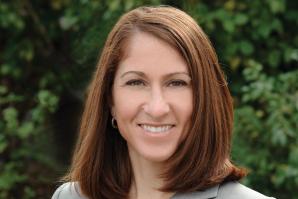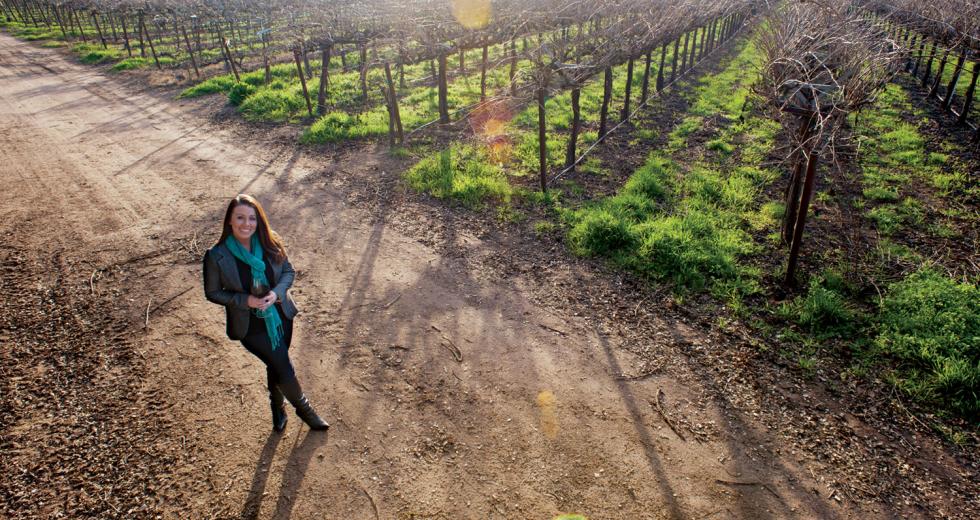Ashley Coleman has wine in her blood. Great-granddaughter of winemaker Julio Gallo, she grew up tending grapes in the family vineyard and working at its winery in Livingston. She knew the family business would color her future, but she never dreamed she would use wine to drive social change.
A graduate of the University of the Pacific and now the founder and CEO of Greater Purpose Wines, Coleman’s strategy is to supply one person with clean water for a year for every bottle of wine her company sells. Its slogan: “Drink Wine, Give Water.”
Coleman knew she would build wells worldwide after visiting Uganda and Haiti, where she witnessed the ravages of famine and filthy water firsthand. In Haiti, a 12-year-old orphan told Coleman that she had to walk alone daily for miles to carry clean water to her village — a chore that one day ended with the child being raped.
Launching Greater Purpose Wines in November 2010 was Coleman’s way of melding her passions for winemaking and philanthropy. The 27-year-old is one of many social entrepreneurs rising from the ranks of the millennial generation, many of whom believe business and philanthropy should go hand-in-hand. The millennial generation, born between 1981 and 2000, was the first to come of age in the new millennium. According to Pew Research, it is the most educated, socially connected generation in American history.
In studying the young generation, sociologists have noted a paradox with findings that millennials are more self-obsessed than prior generations while at the same time more socially responsible and driven toward activism. But some members of this generation argue that there is no contradiction at all — practical idealism refers to a nurturing of both society and the self.
“Our generation wants to take things head on, and we think anything is possible,” Coleman says. “It’s a big world, but we think together we can really make a difference.”
In the future, every successful company will need to look at how their business can positively impact people’s lives and the health of the planet, Coleman says. To thrive, businesses will need a sustainable plan and a greater purpose, she says.
This people- and planet-first attitude stems from millennials being the first generation encouraged or required to complete community service in order to graduate high school, says Lisa Orrell, multigenerational-leadership coach and owner of the Orrell Group in San Jose. Also, they were raised by idealistic baby boomers protesting the Vietnam War, rallying for women’s rights and opposing big government, Orrell says.
Boomers who sold themselves to careers with big corporations encouraged their children to follow passion rather than paychecks, says Lynne Lancaster, co-founder of BridgeWorks in Sonoma, a generational diversity and training company. Boomers empowered their offspring by paying for college, allowing them to live at home and even helping them start businesses.
“[Millennials] don’t want to just get a job; they believe if they work hard, what they do must have meaning,” Lancaster says. “That doesn’t mean they have to join the Peace Corps or start a nonprofit, but they must know the corporation they are working for is donating profits.”
Because of this philanthropic belief, the 78 million young adults that make up the millennial generation are poised to have a great impact on future business as both entrepreneurs and consumers. A study by The Affluence Collaborative, a New York-based research firm, shows 40 percent of millennials want their own business, and 20 percent already have one.
According to Ron Alsop, author of “The Trophy Kids Grow Up,” millennials believe business, rather than politics, is the most powerful way to transform the world and deal with the serious problems they have inherited, such as global warming, poverty and AIDS.
This generation has seen devastation produced by corporate greed, and they look for companies to take social responsibility, Orrell says.
A 2011 study from Barkley, one of the largest independent marketing agencies in the U.S., reveals millennials are more likely to buy products from philanthropic companies, even if they cost more.
Coleman bets wine lovers will buy a bottle of her Cabernet/Zinfandel blend over a big-name red wine because Greater Purpose gives 55 percent of profits to build wells. The company is partnering with the H20 Africa Foundation to provide clean water to about 1,000 people in Uganda, and the wine is distributed in Cost Plus World Market and Whole Foods Market.
“People get really excited,” Coleman says. “They feel like they can enjoy a good wine and be able to give back at the same time. They become really loyal customers.”
Consumers excited about company engagement become more attracted to the product, Coleman says. They tell their friends, family and co-workers, and that word-of-mouth advertising is the best kind, she says.
The key, Coleman says, is making sure everyone in the business — from the CEO down — is committed to the bigger picture. Today, with YouTube, Facebook, Twitter, Yelp and other social sites, companies can’t fake sincerity, she says.
And her Internet-savvy, world-conscious, 20-something peers are quick to call out disingenuousness, Coleman says. She predicts more business leaders will see the need to be transparent and socially responsible.
“At the end of the day, what are we really here for? And what will we be proud of?” Coleman asks. “How much money we made or those moments we had helping people?”
Recommended For You

Command and Deliver
Sacramento's young professionals are gaining influence
No agency is safe. No office off limits. Boardrooms will be infiltrated. Communication barriers will crumble for the sake of collaboration. As the old guard inches toward that horizon called retirement, Sacramento’s young power players are taking center stage.

New Money
The Capital Region’s next generation of philanthropists
In a region that can boast names like Teichert, Friedman and Tsakopoulos, some citizens think the call to give charitably rests outside their circle of responsibility. Not so for Sacramento’s newest philanthropists.



